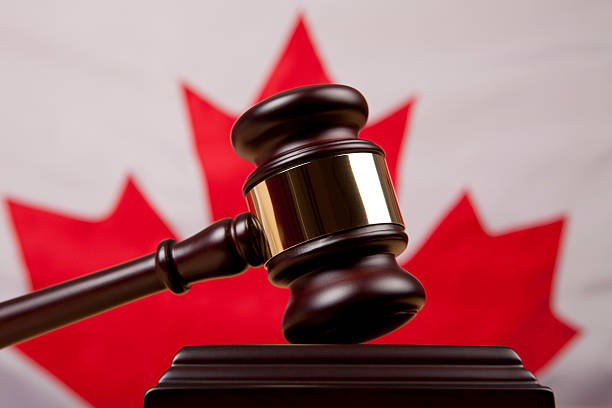Get Detained in Canada

Understanding Detention in Canada: A Comprehensive Guide
Introduction
Detention in Canada is a legal process used by immigration authorities to manage individuals whose presence in the country raises concerns. This could include issues like identity verification, inadmissibility, or perceived risks to public safety. The process is overseen by Immigration, Refugees, and Citizenship Canada (IRCC) and the Canada Border Services Agency (CBSA) under the Immigration and Refugee Protection Act (IRPA).
This guide explores why individuals are detained, the legal framework, rights of detainees, the detention review process, challenges faced by detainees, and avenues for legal assistance.
1. Reasons for Detention
Under the IRPA, the CBSA can detain individuals for various reasons:
a) Identity Issues: Get Detained in Canada
- If a person cannot provide satisfactory documentation to prove their identity.
b) Risk to Public Safety
- If the individual is deemed a threat to public safety or national security.
- Examples include past criminal activity or suspected involvement in terrorism.
c) Risk of Flight
- If authorities believe the person might not comply with immigration proceedings, such as attending hearings or leaving Canada if ordered to do so.
d) Inadmissibility or Criminal Charges
- Individuals accused of misrepresentation, fraud, or other immigration violations.
e) Protection of the Public
- If the person is believed to pose a danger to Canadian society.
2. Types of Immigration Detention
a) Immigration Holding Centres (IHCs)
- Designated facilities managed by the CBSA specifically for immigration detainees.
b) Provincial Jails
- In cases where individuals pose significant security risks, they may be held in provincial jails.
3. Legal Framework
a) Immigration and Refugee Protection Act (IRPA)
The IRPA outlines the conditions under which a person can be detained and their rights while in detention.
b) Charter of Rights and Freedoms
Detainees are entitled to basic rights, including:
- The right to legal representation.

4. Rights of Detainees: Get Detained in Canada
a) Right to Information
b) Right to Legal Representation
- Detainees can hire a lawyer or seek assistance from legal aid programs.
- Organizations like the Canadian Council for Refugees provide resources.
c) Right to a Detention Review
- Detention must be reviewed within 48 hours of initial detention and subsequently every 7 or 30 days.
d) Access to Interpretation Services
If detainees do not understand English or French, interpretation services must be provided.
e) Basic Needs
Detainees are entitled to basic living conditions, including food, medical care, and communication with family or legal counsel.
5. The Detention Review Process
The detention review process is a critical aspect of Canadian immigration law, ensuring that detention is fair and justified.
a) Initial Review
- Conducted within 48 hours by the Immigration Division (ID) of the Immigration and Refugee Board (IRB).
- The CBSA must justify why the detention is necessary.
b) Subsequent Reviews
- If detention continues, subsequent reviews occur at regular intervals (every 7 or 30 days).
- The detainee or their lawyer can present evidence or arguments for release.
c) Factors Considered in Reviews: Get Detained in Canada
- The risk of flight.
- The danger posed to the public.
- Efforts to establish the detainee’s identity.
d) Outcomes
- Release on Conditions: Detainees may be released under strict conditions, such as posting a bond or reporting regularly to authorities.
- Continued Detention: If risks remain, detention is extended.
6. Alternatives to Detention: Get Detained in Canada
Canada emphasizes using detention as a last resort, offering several alternatives:
a) Community Release Programs
- Detainees may be released to live in the community under supervision.
b) Electronic Monitoring
- Technology like ankle bracelets may be used to track detainees.
c) Reporting Conditions: Get Detained in Canada
- Regular check-ins with immigration authorities.
d) Bond or Surety
- Financial guarantees provided by the detainee or their family.

7. Challenges Faced by Detainees: Get Detained in Canada
a) Psychological Impact
Prolonged detention can lead to stress, anxiety, and depression.
b) Separation from Family
Detainees may face extended periods away from their loved ones, especially children.
c) Access to Legal Counsel
Language barriers, lack of financial resources, or limited awareness may hinder access to legal representation.
d) Inadequate Living Conditions
Some detainees report substandard conditions in holding centres or jails.
e) Risk of Deportation
While in detention, individuals may face expedited removal processes, limiting their ability to prepare a defense.
8. Steps to Take if Detained
a) Stay Calm and Cooperative
- Avoid actions that may escalate the situation or harm your case.
b) Request Legal Assistance: Get Detained in Canada
- Contact a lawyer immediately. Legal aid may be available if you cannot afford representation.
c) Gather Documentation
- Provide any available documents that establish your identity and support your case.
d) Prepare for Detention Reviews
- Work with your lawyer to present a strong case for release.
e) Seek Support from Advocacy Groups
Organizations like Amnesty International and the Canadian Civil Liberties Association can offer guidance and support.
9. Case Study: Detention and Release: Get Detained in Canada
Scenario:
Ali, a student from Iran, was detained at Toronto Pearson International Airport upon arrival. The CBSA suspected that his study permit was fraudulent.
Actions Taken:
- Ali contacted a lawyer through the airport's legal aid hotline.
- His lawyer provided additional documentation, including verified transcripts and acceptance letters from the university.
- At the detention review hearing, Ali's lawyer argued that the detention was unnecessary as Ali posed no flight risk or threat.
Outcome:
Ali was released on conditions, including regular reporting to immigration authorities.
10. Legal and Community Resources: Get Detained in Canada
a) Legal Aid Ontario
b) Advocacy Organizations
- Canadian Council for Refugees (CCR): Offers guidance on immigration detention.
- Refugee Legal Assistance Project: Supports refugees and immigration detainees.
c) Government Resources: Get Detained in Canada
- Canada Border Services Agency (CBSA): Manages detention facilities and provides updates on cases.
- Immigration and Refugee Board of Canada (IRB): Handles detention reviews.
11. Conclusion
Detention in Canada, while sometimes necessary, is governed by strict laws to ensure fairness and transparency. Understanding the legal framework, rights, and available resources is crucial for individuals facing detention. With proper legal representation and advocacy, detainees can navigate the system effectively, secure release, and work toward resolving their immigration status.
Canada’s emphasis on human rights and alternatives to detention highlights its commitment to treating all individuals with dignity and respect, even in challenging circumstances.
In case, if you need help with Detention in Canada or other immigration support, please fill in application below or contact us directly.

